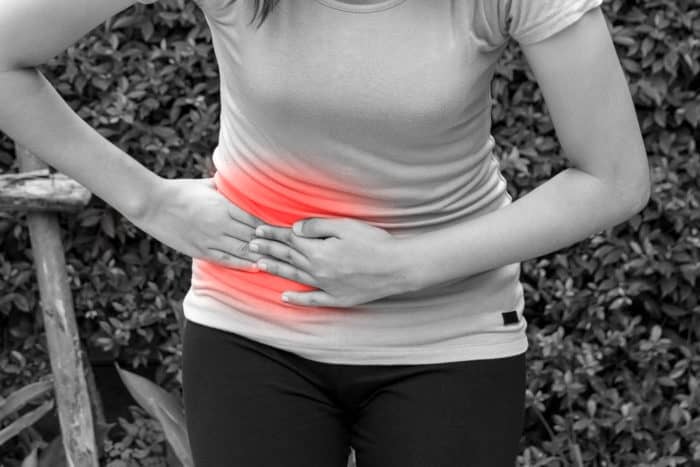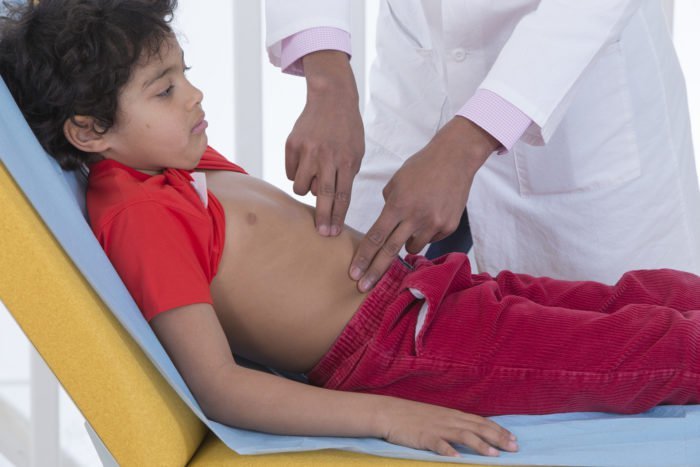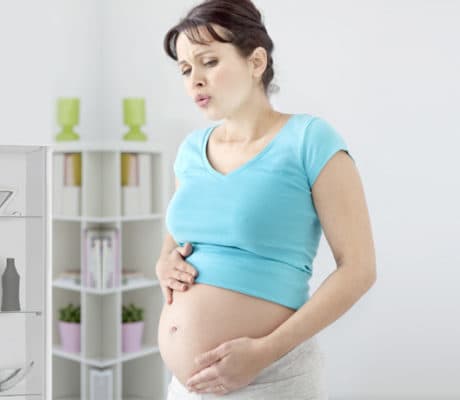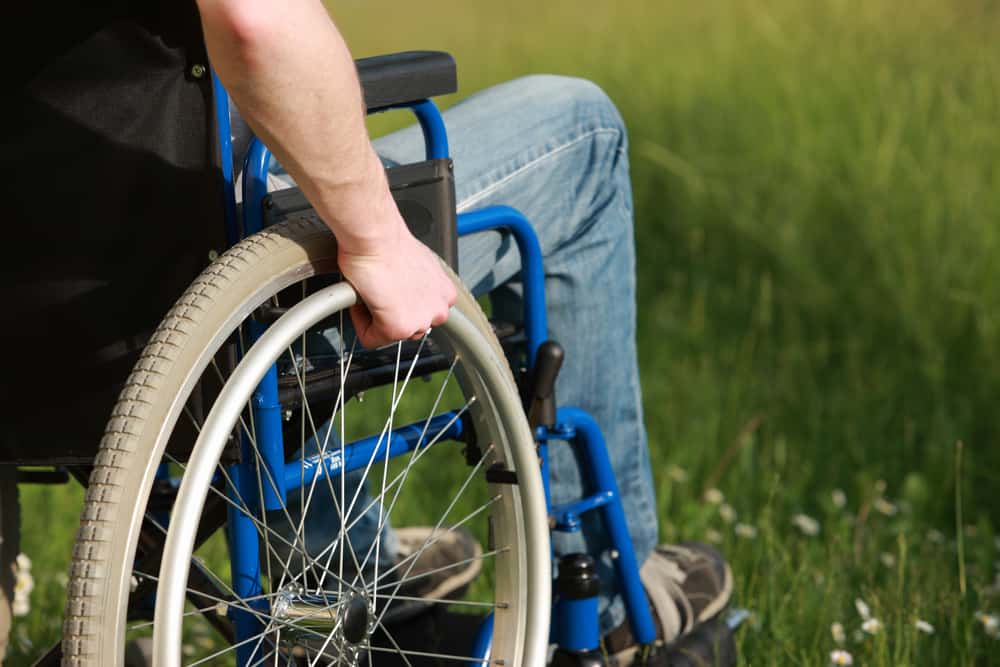Contents:
- Medical Video: 5 common signs of Appendicitis
- The most typical signs and symptoms of appendicitis
- 1. Lower right abdominal pain
- 2. Nausea, vomiting, and decreased appetite
- 3. Indigestion
- 4. Mild fever
- 5. Frequent urination
- Symptoms of appendicitis in children and pregnant women are different
- The appendix can rupture if you don't get the right treatment
- How do you diagnose appendicitis?
- What are the options for treating appendicitis?
- How do you deal with appendicitis during pregnancy?
Medical Video: 5 common signs of Appendicitis
Often experience lower abdominal pain to inhibit daily activities? You may experience symptoms of appendicitis. Appendicitis is a condition that causes inflammation of the appendix. This condition requires immediate medical treatment. If not, the appendix will rupture and cause severe infections that can be life threatening.
Therefore, it is important for you to be aware of the initial signs and symptoms of appendicitis. That way, you can reduce the risk of complications from this disease in the future.
The most typical signs and symptoms of appendicitis
The most typical symptom of appendicitis is pain in the stomach. Even so, it is important to know that symptoms of appendicitis are not just a stomach ache. There are other appendicitis symptoms that can occur.
In some people, symptoms of appendicitis may not occur as a whole, but only a few can appear. In general the symptoms of appendicitis are:
1. Lower right abdominal pain
As explained above, appendicitis usually begins with symptoms of abdominal pain or cramps that occur suddenly. But most people experience more intense stomach pain than abdominal cramps. This symptom of appendicitis occurs because the appendix experiences swelling and inflammation. It also irritates the lining of the abdominal wall, so you experience pain in the abdomen.
The location of pain that the patient will experience may vary depending on the age and position of the appendix. In many cases, this abdominal pain starts in the upper middle abdomen near the navel and usually moves to the lower right abdomen. However, there are some people who experience appendicitis in the back so pain, pain, or cramps occur in the lower back or pelvis. While if you are pregnant, pain may appear in your upper abdomen. Because the position of the appendix tends to be higher during pregnancy because it is pushed by the fetus.
In general, abdominal pain due to symptoms of appendicitis usually tends to increase when you make a movement, take a deep breath, push, cough or sneeze.
2. Nausea, vomiting, and decreased appetite
Apart from abdominal pain, other symptoms of appendicitis can also cause nausea and vomiting. As a result, your appetite may decrease dramatically. This is because inflammation of the appendix sometimes affects the digestive tract and nervous system, allowing you to experience nausea and vomiting.
3. Indigestion
You may also experience some digestive disorders such as constipation or diarrhea when symptoms of appendicitis attack.
Some people also have difficulty wasting the wind, aka farting. If you are one of the people who have difficulty getting rid of the wind, it is most likely that a blockage in the intestine has occurred partially or completely.
4. Mild fever
This disease can cause fever that ranges from 37 to 38 degrees Celsius. If it gets worse, a fever can reach 38 degrees Celsius accompanied by an increase in heart rate.
Fever occurs as a natural reaction of the immune system when fighting infections to reduce the number of bad bacteria that will attack the body.
5. Frequent urination
The appendix is located under the pelvis, so that the position can be said to be close to the bladder. Now, when the bladder is in contact with the inflamed appendix, it will also affect the bladder. As a result, the bladder will experience inflammation.
This makes you urinate more often. In some cases, you may also feel a little painful urination.
Symptoms of appendicitis in children and pregnant women are different
Reporting from Everyday Health, not all patients feel symptoms of appendicitis as mentioned. Some people may not experience symptoms of appendicitis as a whole (atypical).
Even according to research published in 2007 inThe Journal of the American Medical Associationthe symptoms of appendicitis between children and adults are not always the same. Therefore, parents must understand well what are the symptoms of appendicitis in children. The reason, this one disease can be experienced by everyone in any age group.
Reporting from Healthline, toddlers aged 2 years or less often show symptoms of appendicitis as follows:
- Fever
- Gag
- Stomach feels bloated
- The state of the stomach swells, when it is gently tapped it feels soft
Whereas for children and adolescents tend to experience:
- Nausea
- Gag
- Abdominal pain on the right side of the lower abdomen
In pregnant women, symptoms of appendicitis may be similar to a variety of complaints during pregnancy such as morning sickness. Because the symptoms of this disease in pregnant women include reduced appetite, abdominal cramps, nausea, and vomiting.
However, it should be emphasized that appendicitis during pregnancy can cause pain not on the right side of the lower abdomen but in the upper abdomen. This is a little different because the position of the intestine is pushed higher because of the fetus in the uterus. In addition, other symptoms are pain when you urinate. Common symptoms of appendicitis such as fever and diarrhea are rare in pregnant women.
The appendix can rupture if you don't get the right treatment
If you are often ignorant of the various symptoms of appendicitis mentioned above, your appendicitis will break. If your appendix breaks, it can be life threatening and even cause death. Although not all cases of appendicitis cause ruptured appendicitis, if the condition is longer uncontrolled, the risk is greater.
Rupture of appendicitis usually occurs after the first 24 hours after the initial symptoms of appendicitis appear. However, the risk will increase especially at 48-72 hours after your initial symptoms of appendicitis are felt.
Usually the typical sign when a ruptured appendix is faint pain around the navel. When inflammation develops, the pain moves towards the right side of the body, usually towards the hip. Other symptoms that develop during the next 24 hours may include nausea, vomiting, and fever. In some cases patients may also experience swollen stomach, back pain, or even constipation.
When the intestine begins to become infected, the bad bacteria in the intestine will begin to multiply rapidly. As a result, the intestines will become inflamed and filled with pus containing bacteria, tissue cells, and white blood cells that die.
This infection will cause the pressure on the appendix to increase sharply. The blood flowing through the wall of the organ will decrease so that the tissue in the intestine will lack blood and die slowly. This process will continue until the muscle wall in the intestine becomes very thin and eventually breaks.
Therefore, if you experience various symptoms of appendicitis described above, seek medical attention immediately. The earlier your appendicitis is diagnosed, the greater the chance to be free from the risk of complications.
How do you diagnose appendicitis?
Just like other diseases, your doctor may ask about your overall medical history. After that, the doctor will do a physical examination by pressing or tapping the lower right abdomen slowly. In many cases people who suffer from appendicitis generally will feel pain when the lower right abdomen is pressed or tapped even if only slowly.
To establish a diagnosis, the doctor may also carry out further examinations involving:
- Blood tests to see if there is an infection.
- A urine check to make sure your pain is not caused by urinary tract infections or kidney stones.
- Examinationimaging such as x-rays, abdominal ultrasound, or computerized tomography (CT) to see the condition of the patient's appendix.
The doctor may also conduct an intimate organ examination or pregnancy test for women who have not entered menopause. This is done to ascertain whether the symptoms that the patient complains are true because of appendicitis or even diseases related to the reproductive organs.
What are the options for treating appendicitis?

In the case of a relatively mild appendicitis, the doctor may prescribe painkillers and antibiotics as a drug for appendicitis. A study published in the Journal of the American Medical Association found that antibiotics can help reduce the pain of patients with acute appendicitis.
Even so, it does not mean that just taking antibiotics, appendicitis can heal. The reason is, it is still possible if the appendicitis recurred, even if you have taken antibiotics until it runs out.
If the administration of drugs does not help alleviate the symptoms of appendicitis, the doctor will usually recommend the patient to perform surgical removal of the appendix. In many cases, appendicitis surgery can be the best way. It should be noted that appendicitis does not actually have a function that is important enough for the human body, so that its appointment will not cause health problems in the future.
An inflamed appendix can be removed surgically called an appendectomy, aka appendicitis. This procedure is done by making an incision in the lower right abdomen.
There are 2 types of appendectomy, namely:
- Laparoscopic appendectomy. A hose (scope) that is inserted into the stomach to see and lift the appendix. Usually this procedure is performed in cases of mild appendicitis. Most people prefer to do this procedure because the recovery period tends to be faster.
- Open appendectomy. An operation that cuts the lower right abdomen to lift the intestine while cleaning the abdominal cavity. Unlike the laparoscopic procedure, this procedure is intended if the appendix has ruptured or the infection has spread. Because it involves open surgery, this procedure requires a longer recovery period.
If your appendix is relatively mild, you are usually treated for 1 day or can go home on the same day as the surgery. While for severe cases where the appendix has ruptured, the doctor will usually require that the patient be operated on and stay longer.
Even though it has been operated on, appendicitis may recur. However, the occurrence is very rare. A study revealed that the chance of relapsing appendicitis can be caused by the fact that there are still parts of the appendix that are still left behind when surgery.
Other studies also state the same thing. If the next infection occurs in the former surgery, it can be caused by the remaining appendix around 3-5 millimeters. When appendicitis recurs, this will usually be treated by surgery again.
How do you deal with appendicitis during pregnancy?
The most important thing that can be done if you experience symptoms of appendicitis during pregnancy, immediately consult a doctor. There is no treatment or treatment that can be done at home to treat this disease when you are pregnant.
Because the appendicitis during pregnancy which is left without proper treatment can increase the risk of miscarriage and premature birth. Especially if you have entered third trimester pregnancy, aka old pregnancy. The inflamed appendix will eventually cause the intestine to become hollow, so that the contents in the intestine that contain a lot of germs can get out into the abdominal cavity. If this happens, it will be dangerous for both the mother and the fetus.
Usually the doctor will give antibiotics if the appendix you are experiencing is still a mild stage. However, if appendicitis has entered acute status, surgery can be the only solution the doctor will make.
If you are still in the first or second trimester, your doctor will simply do a laparoscopic surgery that only involves a very small incision in your abdomen. But if you are in the third trimester, you may need surgery with a larger incision.
Planning appendicitis during pregnancy will involve the obstetrician and anesthesiologist so that the patient's uterus does not contract during the operation. About 80 percent of women who undergo appendicitis during pregnancy experience premature contractions. Even so you don't worry. Despite premature contractions, most women do not experience preterm labor because of this contraction.
Pregnant women who undergo appendicitis are still able to continue pregnancy and give birth to a healthy baby. So, appendicitis during pregnancy is safe, provided you are responsive to this condition.
Therefore, if you complain of symptoms of appendicitis during pregnancy, immediately consult a doctor so that you can get the right treatment.





















